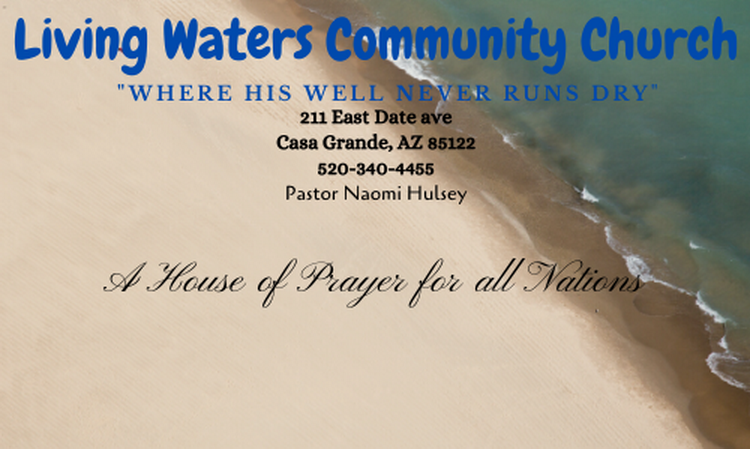
Beliefs
Children's Ministry
Directions
Favorite Links
Photo
Resources
Salvation
Sermons


Message by Dr. Grant Richison
"I mean that the heir, as long as he is a child, is no better than a slave, though he is the owner of all the estate; but he is under guardians and trustees until the date set by the father. So with us; when we were children, we were slaves to the elemental spirits of the universe. But when the time had fully come, God sent forth His Son, born of woman, born under the law, to redeem those who were under the law, so that we might receive adoption as sons. And because you are sons, God has sent the Spirit of His Son into our hearts, crying 'Abba! Father!' So through God you are no longer a slave but a son, and if a son then an heir." --Galatians 4:1-7
Too many Christians are running scared in their walk with God. One problem is that they simply do not know the rights God has given them as His sons and daughters.
Until Nelson Rockefeller was questioned by the Senate Rules Committee late in September, his personal wealth was a closely guarded secret. In testimony he revealed his net worth to be $62 million (only $225,000 of it in cash!). Securities in common stocks and bonds held in trust for Mr. Rockefeller's descendants are worth $35 million. Most of us can't comprehend that level of affluence. Neither have most of us realized the benefits we have as sons and daughters of God.
Some Christians see the enormous gulf between where they are and where they should be in Christian maturity. The Bible can help close the gap because it shows us that the coming of Christ into the world gave certain privileges to God's people that were not available in Old Testament times.
The Illustration
In Galatians 4, the apostle Paul presents the privileges and position of the Christian who has been saved by grace. He anticipates a question--are the Galatian Christians Abraham's seed? The answer is yes. But if Christians are spiritual sons of Abraham, then why don't they live under the law?
To answer the second question Paul illustrates the contrast between living under the law and under grace. He mentions a young heir of a large estate, a youth so rich that guardians and trustees are appointed to care for him until he is of age. The child Paul writes of is no different in privileges from the slave who cares for the child until he comes to maturity to assume responsibility for his inheritance.
In an ideal family a child must live under certain regulations. Rules are a necessary preparation for freedom. A child cannot touch his estate until he becomes a man. At a date set by the father, the legal ceremony of adoption takes place. The believer in Old Testament times was subject to the Mosaic law. He did not know the privileges of sonship we Christians have today. God's people were being prepared under the trusteeship of the law for adoption as sons.
Why Christ Came
In verse 3 Paul turns to an application of the illustration. He suggests that if the Galatians return to bondage under the Old Testament law, they revert to spiritual childhood, to the time before their adoption as God's sons when they were under the custodial care of Moses' law. The picture is of a Ph.D. who returns to grade school to learn his ABC's.
God made it possible to adopt us as His sons by sending His own Son when the time had fully expired, as James Moffatt translates verse 4. The incarnation was God's zero hour. The time God had allotted for the law to prepare man for the coming of Christ had run out. God does nothing prematurely or haphazardly. God sent His Son when the time was ripe. The most critical point in history up to that time was when Jesus was born.
The mission of Christ is presented in the phrase--God sent forth His Son. The words sent forth are from a Greek word meaning to send on a mission. Jesus Christ was officially sent with the full authority of the Father on a mission of redemption. Christ existed as eternal God before He was sent to the earth as a Son. He was God made man. Elsewhere in the Bible Jesus was called a child, but here Paul calls Him a Son. There never was a timewhen He was not God's Son. A person can be a grandfather and still be a son of someone else. Christ,the eternal God, was the Son of His Heavenly Father.
The phrase born of a woman gives a hint of the virgin birth. Jesus was not born of a human father. The word born means become. He came into a new state of being. Before the incarnation He was God, but after His birth He was God-Man. The birth of Jesus Christ was not a beginning but a becoming. On earth Jesus Christ was an Israelite subject to Moses' law--He was born under the law. He said on the Sermon on Mount, "Think not that I have come to abolish the law and the prophets; I have come not to abolish them but to fulfil them." (Matthew 5:17). He was perfectly obedient to the law. He demonstrated His moral competence to be a perfect sacrifice for the sin of the world.
The purpose of the incarnation is clearly stated--to redeem those who were under the law. To redeem means to buy out of the marketplace and to pay the full price. No debt is incurred by the purchaser. No bills are left unpaid. Our Lord paid the full price of redemption for our sin. The price was the penalty due us because of our sin. He took our hell that we might have His heaven. The tense of the word redeem means that Jesus paid the price once for all. Eternal death was the penalty Jesus took in our place.
The purpose of our redemption is stated by Paul: so that we might receive adoption as sons. Because God's work of adopting us as His sons is so important to our understanding of the privileges He has given us, we need to understand the meaning of the act.
To adopt a child today means to choose a child not naturally in the family and make him legally one of the family. But adoption in Bible times was different. The Greek word translated adoption of sons, which literally means son-placing, is a technical word referring to the time when a teenage son received his toga virilis, the toga of manhood. The act does not refer to the adoption of infants. It means induction into the rights of adulthood. If the adult is an heir he has certain rights. The child was already in the family, but at adoption he receives the rights of family heir.
When we accepted Christ as Savior we received rights and privileges we did not have when we were sons of disobedience ( Ephesians 2:2), when we were by nature children of wrath, like the rest of mankind. (Ephesians 2:3).
Your Rights as a Child of God
Paul makes a strong point in this passage. Why should we revert to the law as a way of life? Why should we believers live on the low plane of do's and don'ts when we have supernatural powers and unique privileges available to us.
We don't have to earn God's favor; we already have God's favor. We have the same status as Jesus Christ before our Heavenly Father. His rights are our rights. We have legal title to the rights of the Son of God. These rights are not merited by us. They were obtained by the judicial proceedings of the death and resurrection of Christ.
In the ancient world, the son after adoption became his own master. In Christianity God's son becomes an independent executor of his spiritual estate. Because of the indwelling Holy Spirit the son goes beyond legal regulations in his relationship to God. He has been redeemed from those regulations; their demands have been fulfilled by Christ's death on the cross.
No longer should we have a slavish attitude of fear of God. We serve Him in love. "For freedom Christ has set us free; stand fast therefore, and do not submit again to a yoke of slavery." (Galatians 5:1). Assurance and conviction characterize those who know their standing before God. We do not have to establish merit before God, but we do have the responsibility to walk worthy of our calling ( Ephesians 4:1-3; Colossians 3:1-3).
The fundamental basis of our appeal to God is not our spirituality. It is our position in Christ. God hears us, not because we are spiritual, but because we are legally and forensically right before Him in Christ.
Many Christians are filled with apprehension about their right to walk with God. When they feel guilty about a specific sin they fail to believe that Christ paid the penalty for that sin and they seek to pay for it themselves. They say, Move over, Jesus, I'm going to climb up on that cross and feel bad for my sin. That is an ungrateful rejection of faith in Christ's work for us on His cross. That person does not recognize his rights before God. He tries to atone for sin for which Christ has already suffered.
Prayer is another adopted-son privilege suggested by this passage. And because you are sons, God has sent the Spirit of His Son into our hearts, crying, 'Abba! Father!' So through God you are no longer a slave but a son, and if a son then an heir (Galatians 4:6-7). Your right in praying to God is not in the length of your prayers, nor your sincerity, nor what good works you have accumulated on your record. Your right to pray is based on God's adopting you as a son, which in turn is based on your faith in the work of Christ who came into the world as a Son to redeem us from sin. We can come into the presence of God in prayer the same way our Savior comes into God's presence. "Let us then with confidence draw near to the throne of grace, that we may receive mercy and find grace to help in time of need." (Hebrews 4:16).
Because we are sons of God we are joint heirs with Christ. One of the first things a young couple does after marriage is to take out a joint savings/chequing account in a bank. In their first big financial transaction they deposit all their $24 in the bank. Then they assume it is a 50/50 account--50 is hers and 50 is his. It doesn't work that way, however. One beats the other to the withdrawals every time! When we have a joint account with Christ it is not a 50/50 deal. We hold all His assets for ourselves equally with Him.
Are you writing spiritual cheques that reveal the account you have with God?
What Jesus Christ did for us in His incarnation is incalculable. The Son of God became the Son of Man so that the sons of men might become sons of God. Christ came down from where He was to where we are so that He might lift us from where we are to where He is. Take time to read what the coming of Christ into the world can mean in your life.